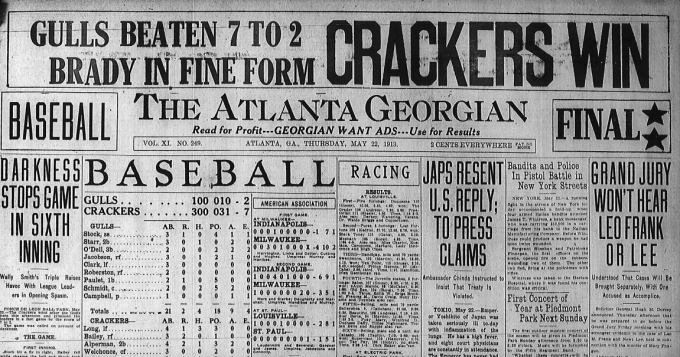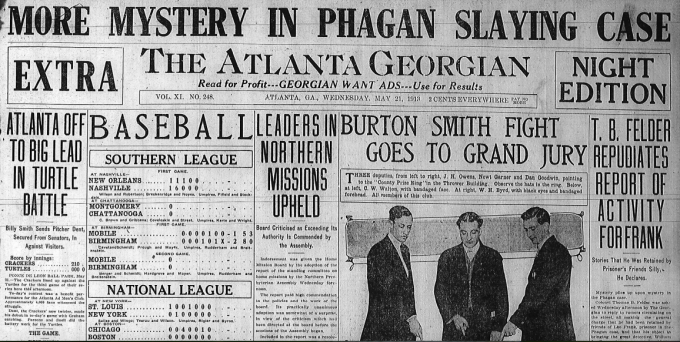Another in our series of new transcriptions of contemporary articles on the Leo Frank case.
Atlanta Georgian
Thursday, May 22nd, 1913
Understood That Cases Will Be Brought Separately, With One Accused as Accomplice.
Solicitor General Hugh M. Dorsey announced Thursday afternoon that he was prepared to go before the Grand Jury Friday morning with his strongest evidence in the case of Leo M. Frank and Newt Lee, held in connection with the murder of Mary Phagan.
Although Mr. Dorsey would not discuss the form in which the cases would be presented, it was reliably stated they would be heard separately and the charge against one would be that he was an accessory to the fact.
Neither of the defendants will go before the jury. Mr. Dorsey said that in the event any move was made to introduce evidence for the defense he was prepared to block it. He said he had looked up Supreme Court decisions on this question, because when the Grand Jury was asked to indict Dr. W. H. Gillem for beating W. H. Johnson the jury in his absence had allowed Dr. Gillem to come before it, which, he said, was contrary to all law.
Twelve to Govern Action.
The opinion of 12 of the 21 jurymen will govern the action of the body. There can be no minority, said the Solicitor. If 12 of the men indict or decline to indict, the other jurors have to sign the “true” or “no bill” with the 12. Eighteen of the 21 constitute a quorum. Continue Reading →


